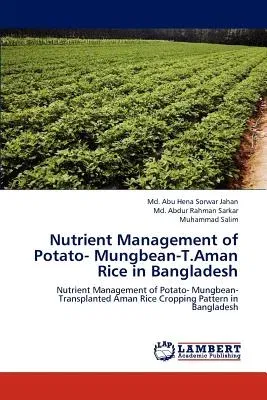Abu Hena Sorwar Jahan
(Author)Nutrient Management of Potato- Mungbean-T.Aman Rice in BangladeshPaperback, 13 August 2012

Qty
1
Turbo
Ships in 2 - 3 days
In Stock
Free Delivery
Cash on Delivery
15 Days
Free Returns
Secure Checkout
Print Length
168 pages
Language
English
Publisher
LAP Lambert Academic Publishing
Date Published
13 Aug 2012
ISBN-10
3659214531
ISBN-13
9783659214530
Description
Product Details
Book Format:
Paperback
Country of Origin:
US
Date Published:
13 August 2012
Dimensions:
22.86 x
15.24 x
0.99 cm
ISBN-10:
3659214531
ISBN-13:
9783659214530
Language:
English
Location:
Saarbrucken
Pages:
168
Publisher:
Weight:
254.01 gm

